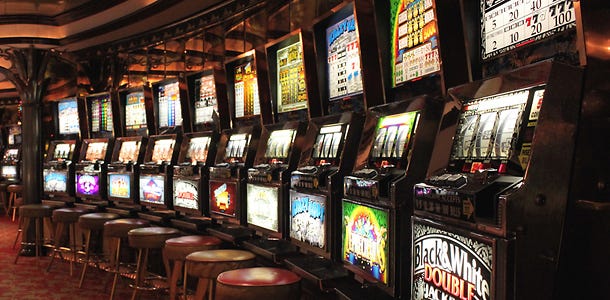Do you have a 'lucky' machine or a special way of choosing a machine to play? A lot of people do. Let's look at the facts of how pokies work and whether you can improve your chances.
- Join the web’s most supportive community of creators and get high-quality tools for hosting, sharing, and streaming videos in gorgeous HD with no ads.
- TheCHIVE brings you the funniest, the most outrageous, and the best photos and videos. You will never be bored at school or work again.
Pokies, known as slot machines in parts of the world other than Australia, are by far the most popular casino games. For Australians who have played the poker machines at their local pubs, clubs or casinos, online pokies will be very familiar in layout and theme.

How the pokies work

Each machine has an inbuilt computer program to randomly generate thousands of possible outcomes every second. When you press the button:
- The machine will randomly pick one result from the many thousands of possibilities
- The next second it will generate thousands more
- It does this continuously every second all day and night
- Poker machines cannot think or remember.
The machine accepts any credit bets. It then randomly determines the position of the symbols on the video display to produce an outcome, which is completely unrelated to the previous game's outcome.
If the machine determines a win, credits are paid.

If not, the machine continues to generate outcomes until the button is pressed again.
Do they remember?
The Pokies Lounge
Machines do not have a memory. Quite often people will continue to play, even if they are consistently losing, because they feel that a win, or free spins, must be coming.
Show Me The Pokies
The fact is that each play on a pokie machine is a separate event and is not affected by previous spins. The machine has no memory of the last spin - or for how long someone has been on it or the length of time between free spins.

Pokies are random
Each spin on a pokie machine is completely random. The concept of randomness is often misunderstood. A common belief is that if we play long enough we will eventually win.
This is a misconception, which often spurs people to keep playing, but remember in many gambling situations each event (or spin) has absolutely no relationship with another.
There is no such thing as a lucky machine
Poker machines don't know if you are wearing your lucky shirt, or that they are your lucky machine. They are all built in the same way and you have the same likelihood of losing your money on each on.
Pokies are designed to take your money
Pokie machines are designed to earn revenue for the venue owners, not to provide a win for players.
The structure and design of poker machines can also trick you into thinking that you are not betting much money and therefore have 'nothing to lose'.
The Pokes Christmas Song
One cent machines are a good example. They disrupt financial judgment about how much is actually being lost, by making it appear like only a small amount of money is involved.
What Are The Pokies
The lights and noise also create an exciting environment to encourage continued gambling even if you are losing.